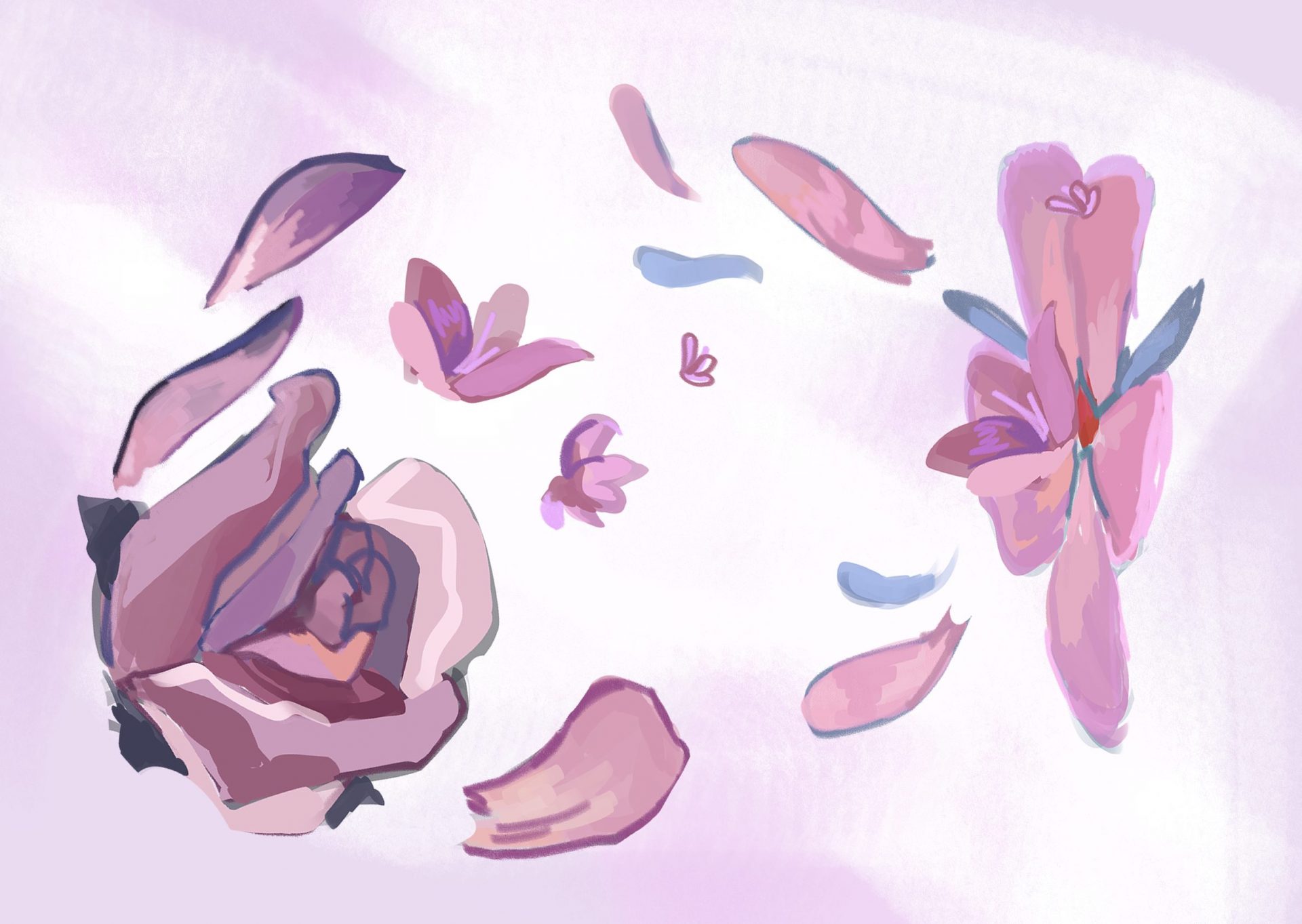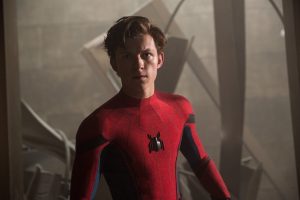Content warning: This article discusses domestic violence.
By now, you’ve probably heard about It Ends With Us (2024) for all the wrong reasons. And that’s a damn shame.
Adapted from Colleen Hoover’s best-selling 2016 novel, It Ends With Us (IEWU) follows Lily Bloom (Blake Lively), a florist who starts dating neurosurgeon Ryle Kincaid (Justin Baldoni) while renovating her new flower shop. Though Ryle appears innocuous and charming at first, he soon begins abusing Lily physically and emotionally. Ryle’s malice distresses Lily deeply, especially since, as seen during the film’s concurrent teenage timeline, she grew up with an abusive father. When Lily reunites with her first love Atlas Corrigan (Brandon Sklenar) whose childhood was similarly unraveled by domestic violence, Ryle’s jealousy only worsens his treatment of the woman he hollowly claims to love.
Since the film’s release on Aug. 9, its marketing (plus rumored cast tensions) has sparked significant controversy.
On one hand, Baldoni, doubling as the film’s director, spent his press circuit spotlighting domestic violence (DV) awareness by platforming No More, an international foundation dedicated to DV advocacy. No More defines DV as “a pattern of behavior used to establish power and control over another person through fear and intimidation” that can be physical, emotional, psychological, or economic in nature. The organization partnered with Wayfarer Studios during the production of IEWU to help ground the film in the lived experiences of DV survivors and to create a comprehensive viewer’s guide outlining healthy and unhealthy relationships, exit strategies for individuals experiencing DV, and mechanisms for supporting survivors.
Meanwhile, Lively’s promotion of IEWU has left much to be desired. When asked how those who resonate with Lily’s story could appropriately contact her, Lively dismissed the question outright: “Are you asking for like my address, or my phone number, or like my location share?” Additionally, at the film’s premiere, she insisted DV survivors are “so much more than just a survivor or just a victim.” Though likely well-intentioned, sugarcoated comments like these subtly silence survivors by sidestepping the difficult conversations at hand for the sake of preserving public comfort. Worse yet, Lively has used the film to promote her personal brands, including her hair care line Blake Brown and cocktail company Betty Buzz. At one IEWU event organized by Lively, the Betty Buzz menu included a beverage tastelessly named “Ryle You Wait.”
With ambiguous promotional materials and Lively encouraging theatergoers to “grab your friends and wear your florals,” many newcomers to IEWU have incorrectly assumed it is a rom-com. The novel sparked similar puzzlement, having been categorized as a romance alongside the rest of Hoover’s sizable erotic catalog. Inspired by the abusive relationship between Hoover’s parents, IEWU’s shelving in the highly accessible, women-dominated romance genre has helped it reach individuals most vulnerable to experiencing something similar to Lily—while anyone can experience DV, the majority of DV victims are women. In a genre that sometimes paints toxic behaviors as permissible at best and sexy at worst—a trend even present within some of Hoover’s other work—having a story written specifically for romance readers which dissects the harmful patterns permeating the genre can do a lot of good. Yet, this genre precarity can also harm: the novel and film omit trigger warnings, an oversight that has the potential to blindside survivors.
Aside from this disappointing, easily preventable shortcoming, Baldoni’s film is largely an empathetic, realistic, and well-researched depiction of DV. For instance, during Ryle’s first violent outbursts, Baldoni initially obscures Ryle’s deliberate inflictions of harm to powerful effect. Until Lily re-examines their relationship, her injuries masquerade as “just accidents” to herself and the audience alike. By only revealing the truth in retrospect, the film gaslights the viewer with the same strategy abusers often use to manipulate their partners: exploiting their desire to extend the benefit of the doubt.
Baldoni is similarly impressive on the acting front, embedding Ryle with considerable depth that defies the stereotype that abusers are one-dimensional people. At times, Ryle is caring—much to our dismay. In making Ryle more than just a caricature of an abuser, Baldoni makes him even more chilling; he makes him easily recognizable.
Countless DV survivors have championed IEWU, as evidenced by many posts on No More’s No More Silence: Speak Your Truth chatboard. DV survivor Mikayla Zazon told TODAY.com “I’ve never read a more accurate story about domestic violence.”
Still, many survivors, including Zazon, are dissatisfied with certain elements of the film, especially with the aforementioned lack of trigger warnings coupled with the movie’s misleading marketing. Furthermore, while many survivors have been inspired by the story’s depiction of a woman who manages to break the generational cycle of DV she was born into, other survivors such as Jjanja Weir fear Lily’s decision to leave is depicted as far too easy. “It scares me because I know that somewhere out there, there is a woman who is experiencing abuse and trying to leave, and for them to see a scene like that and (think), ‘Maybe that’s how I confront him. Maybe if I put this in context, he’ll understand’—that could end with them being in physical harm or worse,” Weir told TODAY.com.
Despite Baldoni’s best intentions, IEWU is not a flawless depiction of DV—he even acknowledged as much. That being said, the film finds its power in its ability to start conversations: conversations recalibrated to address why abusers harm as opposed to why their victims stay and how we can portray DV on screen with even more tact moving forward. It would be impossible for this story about a single family’s experience to speak to the experience of all survivors—after all, there is no universal experience of DV. Everyone’s story looks different, and therefore to ask IEWU to cover the experiences of all DV survivors and victims is to ask too much of it.
However, the impossibility of universality is precisely why we need more stories about DV: so everyone can find a story that speaks to their own. By holding media such as It Ends With Us to a high standard of excellence and appreciating its strengths while simultaneously evaluating how it could’ve been better, we are engaging in a dialogue of critical importance.







